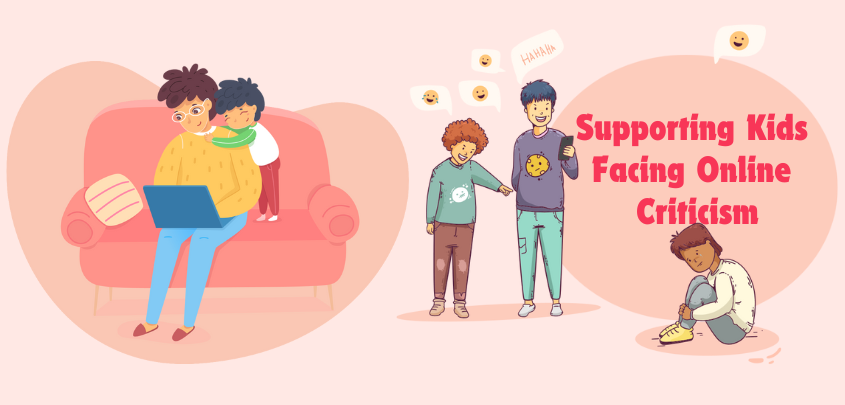
19, Jul, 2024
The Intersection of Cyberbullying and Body Image: Supporting Kids Facing Online Criticism
In the modern era of digital technology,the overlap between cyberbullying and body image challenges presents a formidable obstacle for youngsters. The widespread use of social media platforms and online interactions can exacerbate insecurities about one’s physical appearance, leading to detrimental impacts on the mental health of children and teens. Recognizing and understanding this intersection is essential for parents, educators, and caregivers to provide effective assistance and cultivate resilience in young individuals facing online criticism.
The Impact of Cyberbullying on Body Image
Cyberbullying refers to the use of digital platforms to harass, threaten, or embarrass individuals. When it targets body image, it can be particularly damaging, as it exploits young people’s vulnerabilities about their appearance. Negative comments, doctored images, and comparison culture prevalent on social media can significantly impact a child’s self-esteem, leading to issues such as:
- Low Self-Esteem: Continuous unkind comments about how someone looks can make them lose trust in themselves and feel not good enough.
- Mental Health Issues: Cyberbullying can make kids anxious, sad, and even cause problems like eating disorders because they try too hard to look a certain way.
- Social Withdrawal: Being scared of more mean comments can make kids avoid talking to others, online or in person, making them feel even more alone.
Strategies for Supporting Kids
To effectively support kids facing online criticism, it is essential to adopt a multifaceted approach that involves education, open communication, and promoting positive body image. Here are some strategies:
- Talk Freely: Encourage kids to share their online experiences and feelings openly. Make sure they feel safe and not judged when they talk about what’s bothering them.
- Learn About Online Safety: Teach kids about cyberbullying, how to spot it, and what to do if it happens. Help them understand privacy settings and why it’s important not to respond to bullies.
- Feel Good About Yourself: Tell kids that everyone is different and that’s okay. Help them accept themselves and understand that comparing themselves to edited pictures on social media can be harmful.
Fostering Resilience
Helping children become resilient is crucial for handling online criticism. Encourage activities that build self-confidence, like sports, arts, and other hobbies. Teach them how to solve problems and to focus on their strengths and achievements. Celebrate diversity and uniqueness so they can appreciate what makes them special.
In summary, tackling the overlap between cyberbullying and body image issues calls for a well-rounded strategy that involves education, open communication, and fostering a positive self-image. By providing children with the necessary tools and support, we can help them face the challenges of the digital world with confidence and resilience.
